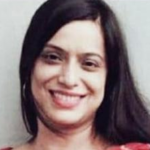Classical connection
“Music is my life, I live in it; it’s my companion in my wakefulness and even when I sleep. Not just learning it, but what can we give back to it is what our primary concern is,” opens up Pt Umakant Gundecha, who was in Chandigarh recently for a five-day National Theatre Festival held at the Tagore Theatre.
“Dhrupad is the oldest mother music vidha. It originated from Samved. This music started and flourished in temples,” adds Padma Shri recipient Pt Umakant, about the style of music that was sung by Swami Haridas, Tansen and Baiju Bawra. Pt Umakant performed in the Pratigya episode of Sangeet Natak Akademi, New Delhi, which, along with Chandigarh Sangeet Natak Akademi, organised the Festival.
Gundecha family has been the leading exponent of Dhrupad in the country. Pt Umakant rests the credit of their success to his father, “My father was very inclined towards art. He gave us exposure to different forms of it. Seeing mine and my brother Ramakant’s interest in music, he ensured we got the training right.”
The Gundecha brothers moved from their hometown Ujjain to Bhopal for training in Dhrupad music under Zia Fariduddin Dagar and his brother Zia Mohiuddin Dagar. One of the most active performers and teachers of Dhrupad, Gundecha brothers have toured more than 30 countries around the world and recorded as many as three dozen albums for various national and international music labels.
In due course, they opened their own Dhrupad institute near Bhopal, where they teach students from all over the world. “When we studied under our Guru, we stayed with them. My brother and I cooked our meals as we trained. That was all right for those times. In our institute, we have tried to provide all the facilities we felt were necessary.” A sprawling place spread over 4.5 acre with nature as its mainstay, library with books on Dhrupad, an audio-visual library with rare pieces, rooms for the students and a mess comprise their place. “We have trained students from as many as 35 countries,” shares Pt Umakant, proudly.
“The beauty of Dhrupad is that coming from temple origins, it helps the listener connect to one’s inner self,” explains Pt Umakant. He mesmerised the audience with his performance, even as the non-classical music-lovers were taken by surprise with the beauty of it.
One could see the seat of Ramakant Gundecha being taken by his son Anant. Something that the audience is getting used to and he himself is. Having lost his brother in 2019 to a heart attack, the famous Gundecha Bandhu jodi has the new entrant in Anant, Ramakant’s son. “How Anant has picked up in this little time is praiseworthy. If you listen to him with eyes closed, it’s as if you are listening to his father. It’s the same sound quality,” he beams. They sang three short pieces — Tu Hi Surya, Tu Hi Chandra, Shankar Sut Ganesh and Shiv Stuti, which left the audience in awe.
Gundecha brothers’ Dhrupad pieces have been in films, including the recent Mohalla Assi. Acknowledging that in our country film music is more popular among the masses, he explains. “We are open to doing film music. It’s my humble request to everyone to listen to ghazal, bhajan, filmy music and pop, but also Dhrupad.”
While Dhrupad was most flourishing back in the 15th and 16th centuries, Pt Umakant believes that its practitioners, in a bid to keep the music within the family, dented its spread to some extent. “The responsibility to take this music further lies on the shoulders of its practitioners. While being proud of Anant, his nephew and Dhani, his daughter, for taking up Dhrupad, he shares, “About 15 of the disciples are A-grade artistes.”
“In the digital world today, there is problem of plenty. But I urge the youngsters today to practice any form of art — music, dance or painting. It would add a different perspective to your personality,” he advices.
Fitting finale
A house full, followed by a standing ovation, the five-day National Drama Festival concluded on a befitting note with an enthralling staging of the play Sohni Mahiwal. An impressive set, beautiful costumes, intense act and stupendous music, the play was a hit with the audience. "Chandigarh theatre scene is now comparable with the national level. Sohni Mahiwal was a beautiful production and that it was by students makes it even more significant. Replete on all four counts — angik (body movement, expression), vachika (dialogues, singing), aharya (costumes, make-up, set design) and satvik (feel) — it was exemplary," said Sudesh Sharma, chairperson, Chandigarh Sangeet Natak Akademi (CSNA). A Department of Indian Theatre production, this play was written by Ekam Manuke. It was designed and directed by Navdeep Kaur. One of the most prominent poetic stories of Punjab was woven with the songs and kalams of Sufi poets Fazal Shah, Hashim Shah and Bulleh Shah. The music of the play was by Tejinder Singh. “Our National Theatre Festival is an honest attempt and experiment to not just bring theatre from the rest of the country to the city, but also have one of our own plays in it," shares Sharma. CSNA is also ensuring a platform for city artistes by holding Chandigarh festivals in different states. “For long, Chandigarh audiences have clapped for artistes from outside, we now want viewers from other cities to clap for our artistes.”
Unlock Exclusive Insights with The Tribune Premium
Take your experience further with Premium access.
Thought-provoking Opinions, Expert Analysis, In-depth Insights and other Member Only Benefits
Already a Member? Sign In Now










